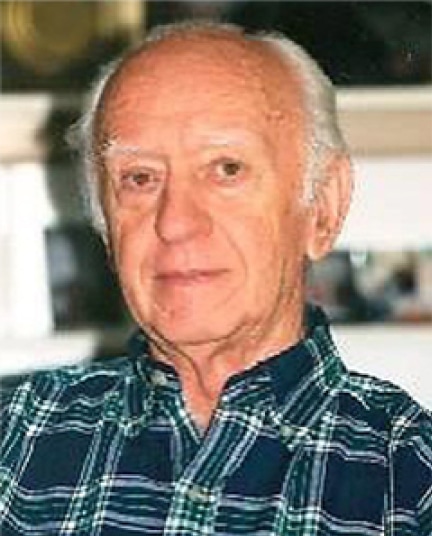2026 coming soon
Since 1978, a benchmark in international athletics
Get to know all the editions!
Born on December 3, 1938, Miquel Pucurull Fontova responds to the profile that we all understand as a popular runner. The grandfather, as many people know him in this world, came into contact with long-distance races in 1979 thanks to an article written by Ramon Oliu, the founder of the Marató de Catalunya, in which he advised how they should start running sedentary people. He was 41 years old, overweight, and had stopped playing basketball, his first sport, 12 years ago. A few months after starting training, in March 1980 he already dared to run a marathon in the third edition of the Marató de Catalunya, which for the first time was held in the streets of Barcelona.
Since that day he has run 43 marathons and completed 41. The Zurich Marató Barcelona has been run 28 times, the first in 1980 and the last in 2010. His best marathon time is 3h14 (Donostia'89), but he also has 1h25 in a half marathon (Sitges'90) and he feels very proud of his 4'54 '' in 1,500 meters on the track (Zaragoza'86). In the Marató de Barcelona, her best time (3h21) was achieved on March 18, 1990, the same day that her daughter Elisenda, who was an elite marathoner, won the race in the women's category.
Miquel Pucurull was also one of the promoters of the Marató a Barcelona Platform, which was created when the event was suspended in 2005, and since his return in 2006 he has been a member of its Promoting Committee and its Senate.
Ramón Oliu (Cantonigròs 1923 - Hamilton 2005) has been one of the most important figures in Catalan athletics. Introducer and promoter of the popular side, it is necessary to consider him as the promoter of foot races in Catalonia and the entire State.

Ramón Oliu (Cantonigròs 1923 - Hamilton 2005) has been one of the most important figures in Catalan athletics. Introducer and promoter of the popular side, it is necessary to consider him as the promoter of foot races in Catalonia and the entire State.
With a degree in chemistry from the University of Barcelona, he went to the United States as a young man to work, where he acquired very high-level scientific knowledge: Master's Degree in Petroleum Engineering and Master's Degree in Chemical Engineering, among other things. In the early 1970s, when he was 48 years old, he came to the conclusion that he needed to exercise. He started doing it around his home, and gradually became a veteran long-distance runner, coinciding with the running fever that was taking place in the United States, his host country.
He was seduced by the marathon when he ran the one in New York in 1976 and, returning to Barcelona the following year for work reasons, he wanted to extend the modality of running for the pleasure of running. Faced with the strangeness and perplexity of pedestrians, he used to do it with shorts around the Pedralbes Palace on the Diagonal in Barcelona, at a time when runners who practiced athletics did so only inside stadiums.
He went to the federation to ask when the popular marathon in Barcelona was run. When he answered that there were none, neither in Barcelona nor anywhere (there was only the Spanish Championship for federated, which was held every year, period), he decided that one day not too far away he would organize it. He got in touch with athletes who never left the few tracks that were then, and also with sports leaders who were frozen by his proposals to run races on foot through the streets. Thus, in 1977 he founded the Catalunya Marathon Commission, which with the help of Raimon Vancells, Jordi Mensa, Francesc Mates and Dr. Pere Pujol, served to spread the benefits of running in a popular way throughout Catalonia.
Due to his relationships with the organizers of the New York Marathon, he managed to get a team from Catalonia, made up of Domingo Catalán, Josep Molins, Fernando Francisco, José Pro and Jordi Jorba, to be invited to participate in the mythical test of the city of skyscrapers. of that year 1977, where, against all odds, they got third place.
The following year (1978) he organized the first marathon in the State, in Palafrugell, with 185 athletes. And after two years in a row in the Baix Empordà -in Barcelona it was not possible due to lack of permits-, he started the first marathon in the city of Barcelona in 1980.
Endowed with exceptional qualities as an organizer, Ramón Oliu did a titanic job to develop popular athletics in Catalonia: from the creation of the first marathons, to long-distance races, through conferences, talks, articles and the publication of a book on year 1979 and reissued in 1999, "L'essència del córrer", which was - and continues to be - a reference for all long-distance athletes.
A member as he was of the New York Academy of Sciences, writer, journalist, lecturer and pioneer of running on foot, Ramón Oliu, a paradigm of personal simplicity, considered himself "a popular runner", and that is how he wanted to be recognized . At the end of his professional work in Catalonia in 1984, he returned to the United States. After 10 years - four after retiring - he was diagnosed with Alzheimer's disease, which was the cause of his death on April 3, 2005, at the age of 82.
A global change starts with a first individual step. Accept the challenge of the Zurich Marató Barcelona 2025.
Dare to surpass yourself.